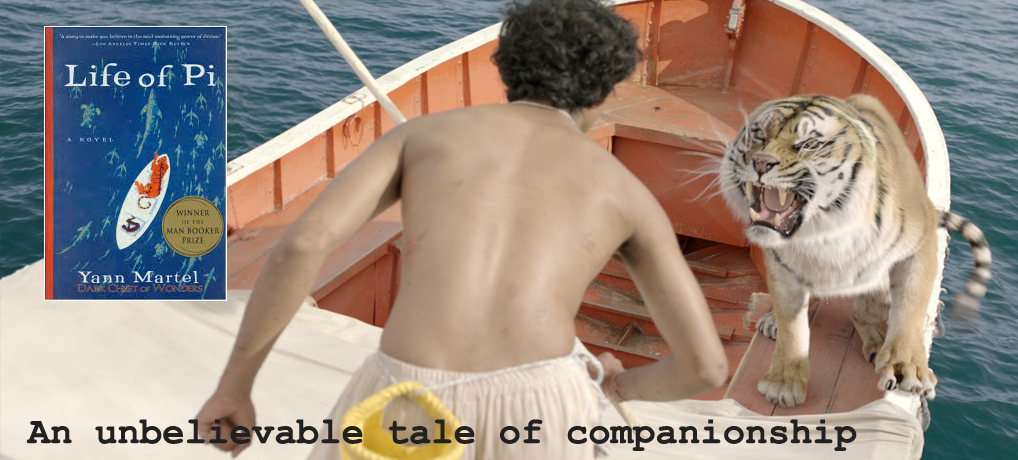
“Are we there yet?” Do you remember saying these words as a kid on a road trip with your family? When I was a kid we drove everywhere. I grew up in central Ohio and can remember taking Spring Break road trips to Snowshoe Mountain, WV to say goodbye to ski season, or driving down to Orlando, FL to finally meet “The Mouse” at age 11. I remember visiting family in Missouri on our way to Colorado for a ski adventure and packing up the camper to head to the Michigan International Speedway for a NASCAR race.
But I was a terrible road trip traveler as a kid. I always had a hard time getting comfortable and would eventually just stay up all night until we stopped to set up camp or pull into a hotel. It seemed like I had the smallest bladder in my family and remember dancing in the backseat looking forlornly at the highway exit signs that promised fast food restaurants and gas stations with bathrooms.
 My trip with Pi Patel in this book was met with just as many issues, if not a little different. I would get bored with the long-winded explanation that Pi had for everything and I would skip parts of the book that I was afraid would make me sick from description. I even stopped reading it in order to read other books instead and would later come back or would read it on my phone if my Kindle died because it was one of the few books I had placed on the cloud.
My trip with Pi Patel in this book was met with just as many issues, if not a little different. I would get bored with the long-winded explanation that Pi had for everything and I would skip parts of the book that I was afraid would make me sick from description. I even stopped reading it in order to read other books instead and would later come back or would read it on my phone if my Kindle died because it was one of the few books I had placed on the cloud.
But for all the topics that made me squeamish and the long-winded explanations that made me go cross-eyed, one thing stuck out to me. Yann Martel is a creative genius. I would get bored when Pi was bored floating on the water without much to do or look at. I was squeamish when Pi was apprehensive about trying a new food item such a turtle guts. I was excited when Pi was excited and flew through the pages of him on an island full of lemurs. I was sad and would tear up when he reminisced about his family that had apparently gone down with the boat. And just as Pi was ready to give up on life and die in the ocean, I was thinking “Man, I wish he would hit land soon.”

The storyline is a simple one. An Indian boy and his family pack up their zoo and ship out to Canada. While in the Pacific they hit weather and the ship sinks. Pi is lucky enough to land in a lifeboat, but unlucky enough to be sharing it with some of his zoo animals including a Bengal tiger named Richard Parker.
One by one the animals are consumed by the tiger until it’s only Richard Parker and Pi left on the boat. Pi uses his knowledge of animals to keep the tiger at bay and eventually forms a relationship with him by supplying him with the only fresh water and food to be had. Pi and Richard Parker spend around 8 months at sea and battle issues such as finding shade, staying hydrated, eating well and riding out storms. Eventually, they land on a beach in Mexico and Richard Parker leaves Pi on the beach to be rescued by some locals.

When Pi recounts his tale to the Japanese owners of the ship they don’t believe his story. So Pi tells another, more plausible story. The real question is, are either story true?
I give Life of Pi 4 stars. It was very well written, but I’m not much of a survivalist and so some pieces of the book were hard to read. I also had a hard time reconciling the fact that Pi professed to be Hindu, Christian, Jew and Muslim with equal devotion to all religions. It seemed a bit blasphemous to me.
By the way, I’m thinking that I may not see the movie now. If you’ve ever seen “Cast Away” starring Tom Hanks, I have a feeling it will be similar. But you never know, curiosity may get the better of me one day.
Have you read Life of Pi? What did you think? Did it make you want to see the movie?

